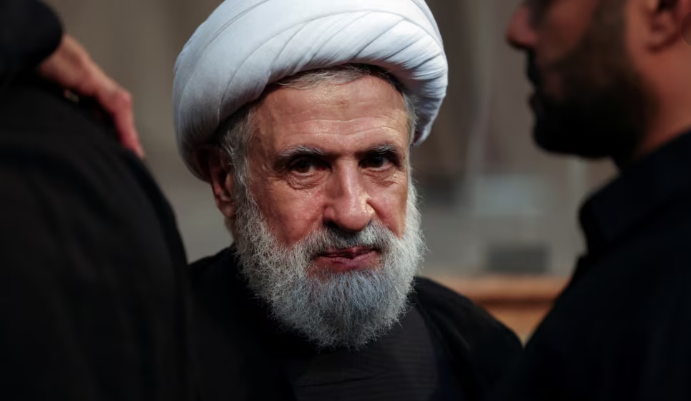October 29, 2024
In a significant shift in leadership, Hezbollah has named Naim Qassem as the successor to the group’s long-time chief, Hassan Nasrallah, who was recently killed in a targeted attack. This announcement marks a pivotal moment for the militant group as it navigates a complex regional landscape.
Naim Qassem, who has served as Hezbollah’s deputy secretary-general since 1991, is known for his close ties to Nasrallah and his deep involvement in the group’s strategic and operational planning. His appointment comes at a time when Hezbollah faces mounting challenges, including increasing scrutiny from both regional adversaries and the international community.
Hezbollah’s leadership transition is critical as the group continues to engage in various conflicts in the region, particularly in Syria and its ongoing confrontations with Israel. Qassem’s ascension is expected to maintain the group’s current policies, but his leadership style and strategic focus may differ from that of his predecessor.
In a statement released by Hezbollah, Qassem pledged to uphold the values and objectives established by Nasrallah, promising to continue the resistance against perceived threats to Lebanon and the broader Arab world. “We will not falter in our mission; the path laid by our martyrs will guide us forward,” he stated during a press conference.
The implications of Qassem’s leadership extend beyond Hezbollah’s internal dynamics. As a key player in Lebanon’s political landscape, his rise could affect Hezbollah’s relationships with other factions in the country and its role in the region. Analysts are closely watching how Qassem will navigate the delicate balance between maintaining Hezbollah’s militant identity and addressing the socio-economic challenges facing Lebanon.
The announcement has also drawn attention from international observers, particularly given Hezbollah’s designation as a terrorist organization by several countries, including the United States. Qassem’s leadership may prompt renewed calls for action against the group as it continues to engage in regional conflicts and expand its influence.
As Hezbollah moves forward under Qassem’s leadership, the organization will need to address both external pressures and internal challenges, including public dissatisfaction with the political and economic situation in Lebanon. The coming months will be crucial in determining how the group adapts to the new leadership and the changing geopolitical landscape.



